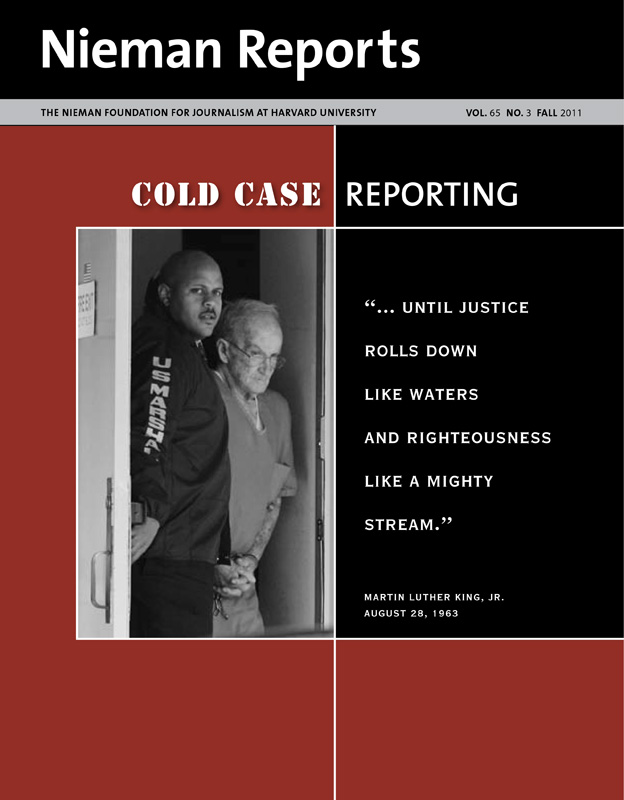Cold case reporting is one of those endeavors that require friendly, trustworthy support and collaboration. This can be hard to find on back roads while chasing stories that some people don't want told. After investigating the Henry H. Dee and Charles E. Moore murders, I took a much-needed leave of absence from the Canadian Broadcasting Corporation and went to work for Paperny Films in Vancouver, Canada. With their encouragement and support, including invaluable help from development director Aynsley Vogel, I began calling some reporters who were doing similar work—John Fleming, Jerry Mitchell, and Stanley Nelson, to start with—to explore their interest in forming closer connections as we pursued these cases.
Related Article
“It Takes a Hard-Driving Team to Uncover the Truth of a Cold Case”
– David Ridgen
The vision was this: Creating a trusting partnership would enable us to combine forces to pursue the truth in the civil rights era cases we were finding. We'd exchange information freely and help each other by using our experience, knowledge and connections to move cases forward. Major partners in our coalition would be Paperny Films and the Center for Investigative Reporting (CIR) in Berkeley, California.
Related Article
This idea was realized in 2008 with the founding of the Civil Rights Cold Case Project. When securing funding to achieve all of our goals proved problematic, we pared back our initial ambition and still have accomplished much that we might not have achieved if each of us was working on his own.
There is Fleming's seminal work on the Jimmie Lee Jackson case; his reporting led to a conviction. Nelson's plethora of stories earned him a finalist spot for this year's Pulitzers and brought the Frank Morris case before a grand jury. What Ben Greenberg discovered about Clifton Walker's murder is now the subject of discussions between the FBI and members of Walker's family. And Jerry Mitchell continues to doggedly pursue his investigation into the deaths of James Chaney, Andrew Goodman, and Michael Schwerner, the three civil rights activists slain in 1964 in Mississippi.
Documenting the work of these reporters is a part of my ongoing contribution to this cold case effort. So I've been filming with Nelson as he reports on the 1964 Morris case. Produced by Paperny Films, my work will be broadcast on MSNBC. In addition, I'm assisting Greenberg with his Walker investigation, also involving a murder in 1964.



